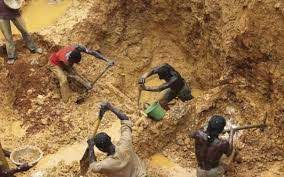

The government is mapping out abandoned mining sites across the country in an effort to address the long-term impacts of mining on the environment.
This proactive step is aimed at developing tailored rehabilitation plans that will transform these areas into sustainable and productive spaces.
According to Mining and Blue Economy PS Elijah Mwangi, there is a need to focus on what actions need to be taken after mining operations have ended, particularly with respect to land rehabilitation and post-mining usage.
"We have identified the regions where mining activities have occurred. We are mapping abandoned mining sites to create customized rehabilitation programs suited to each site."
As part of the government’s plan, Mwangi said some of the large abandoned mining sites, which have naturally transformed into swamps, will be rehabilitated for aquaculture.
Other areas will be refilled and converted into agricultural land, while some sites may be repurposed for forestry or tourism development.
Another key focus of the initiative is the informal sector, specifically artisanal and small-scale miners.
The PS noted that the government has formalized these operations through 52 mining marketing cooperatives in the region.
By providing mining permits through Artisanal Mining Committees, which are headed by county governor nominees, the government is aiming to streamline the sector and improve its oversight.
"We are working to formalise artisanal mining in this region, ensuring miners have access to legal mining permits and proper training.This will help improve their productivity, prevent environmental degradation, and ultimately change their livelihoods."
To ensure the success of these initiatives, the government has already started engaging with artisanal miners through regional mining officers.
Additionally, he said more geologists and mining engineers have been hired to provide technical support and guidance to the miners.
KCB Director Corporate Banking John Okulo noted that they will be working closely with both the National and County government with artisans to ensure they can access funds they require to purchase equipment that may help them be proactive.
"We already have a financing solution in place for organized groups, and we can lend up to Sh250 million for them to purchase the equipment they need," said Okulo.
He added that they will also provide insurance through our bank assurance entity to ensure that miners are protected, as this is critical to safeguarding their livelihoods and income.
Ken Onditi, National Director of the Chamber of Commerce in charge of Nyanza region, also voiced support for the initiative, stressing that the rehabilitation of mining sites and support for artisanal miners will have far-reaching benefits for the economy and the environment.
The government's efforts to revitalise abandoned mining sites and empower small-scale miners are seen as essential steps toward ensuring the sustainable future of the mining sector and mitigating the negative impact of past mining activities on the environment.






